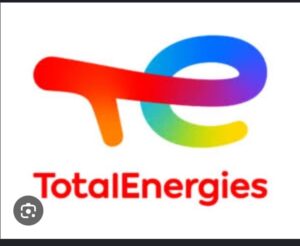The House of Representatives on Monday said it is pushing for stronger legislative measures to guarantee steady crude oil supply to Dangote and other Nigeria’s local refineries, as part of efforts to deepen domestic refining capacity and end the country’s dependence on imported petroleum products.
Speaking at the “Inaugural Annual Downstream Week Summit 2025” held in Abuja, the Chairman of the House Committee on Petroleum Resources (Downstream), Hon. Ikenga Imo Ugochinyere, said the legislature was working on new laws to ensure that local refineries never lack crude feedstock, a problem that has long crippled Nigeria’s refining sector despite huge investments.
According to Ugochinyere, the House Committee is developing legislative measures that will grant local refineries first right of refusal on crude oil allocations, streamline regulations to remove delays, and establish a Refinery Protection and Promotion Bill that will classify refineries as strategic national assets deserving priority protection and support.
“We are determined to ensure that every barrel of Nigerian crude first serves the Nigerian refinery before any export allocation is made. This is how we can guarantee the survival of our local refineries, create jobs, and strengthen our energy independence. Nigeria must refine what it produces and consume what it refines,” he said.
He noted that one of the most commendable policy steps in recent times was the enforcement of the Domestic Crude Oil Supply Obligation (DCSO) by the Nigerian Upstream Petroleum Regulatory Commission (NUPRC).The policy, according to him, mandates that local refineries, including modular and conventional operators, must be supplied with crude before any is exported.
“This bold move represents a decisive shift from policy rhetoric to practical support for local value addition.
“By ensuring that domestic refineries have guaranteed access to crude feedstock, we are laying the foundation for true energy independence and industrial growth,” he said.
The lawmaker, who represents Ideato North/South Federal Constituency of Imo State, said the legislature’s plan aligns with President Bola Ahmed Tinubu’s Renewed Hope Agenda, which emphasises economic diversification, energy security, and job creation.
He added that the proposed legislative steps would help sustain investor confidence, stabilise operations across the refining value chain, and strengthen the naira by reducing Nigeria’s reliance on imported petroleum products.
“We have come a long way as a country. What we must now do is ensure that our refineries never go idle for lack of crude. That is the commitment of the House Committee on Downstream Petroleum Resources — to protect, promote, and empower every refinery operating on Nigerian soil,” he said.
He commended the management of the Nigerian National Petroleum Company Limited (NNPCL) for transforming from a loss-making entity into a profitable and performance-driven enterprise, and for ongoing reforms aimed at stabilising fuel supply and ensuring economic security for citizens.
In his remarks, Speaker of the House of Representatives, Abbas Tajudeen said the oil and gas industry, especially the downstream sector, is witnessing an unprecedented revival under the leadership of President Bola Ahmed Tinubu.
Abbas, who was represented by Deputy Speaker Benjamin Kalu, said the effective take-off of the Dangote Refinery marked a turning point in the nation’s quest for energy self-sufficiency.
He also said the anticipated emergence of other private indigenous refineries underlines the need for the National Assembly to continue to create a functional environment for industries to thrive.
He urged the stakeholders to come up with innovative and creative solutions that will revamp the petroleum downstream sector, contribute to the overall development of the economy and positively impact the country as a whole.





